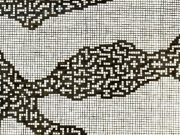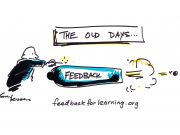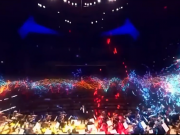Opinion or editorial blog entries from members and other scholars
Home Opinion or editorial blog entries from members and other scholars
EdTech Within Limits …. toward the sustainable use of digital technology in education
The ways in which digital technologies are now produced, consumed and discarded is of growing environmental concern. As such, the escalating use of digital...
Netflix and high school algebra: a short story about methodological domination
By Carlo Perrotta
Featured image by Daniel Friedman
This post is part of a series on artificial intelligence and computational methods in education. The first post...
Notes for a critical analysis of Machine Learning in education
By Carlo Perrotta
Featured image by Daniel Friedman
Part 1
Artificial Intelligence is without doubt a topic deserving serious consideration and scholarly attention, but its impact on...
Google and education: a critical perspective
by Edwin Creely
Monash University
I recently heard a keynote address in Washington, DC by Jaime Casap of Google Education. To a packed audience, the self-described...
Any teacher who can be replaced by a machine should be …
by Neil Selwyn
“Any teacher who can be replaced by a machine should be” (Arthur C. Clarke)
The science fiction writer Arthur C. Clarke memorably stated...
What makes for ineffective feedback?
The literature is filled with claims about what makes for effective feedback, for example, feedback that focuses on student self-regulation; feedback designs that require students to act on the comments they receive; and feedback that is timed so students can act on it. But what about what makes for ineffective feedback?
Exploring the social and ethical implications of using autonomous robots in the classroom
As educational researchers, we ought to take seriously growing concerns about the deployment of autonomous robots into public spaces, focusing on their effects on the school as a social institution.
Art as Digital Theory // Digital Theory as Art
Author: Luci Pangrazio
The call for new frameworks to understand the increasing complexities of the contemporary digital context is not new. Innovative approaches to the digital...
Is Ed-Tech research nearing its ‘Big Tobacco’ moment?
Pasi Sahlberg - the Finnish education policy advisor, researcher and author - was recently in Australia and, as always, had plenty of interesting things to say.
Aside from the usual concerns around PISA and the straight-jacket of standardized international benchmarking, he expressed some troubling thoughts about digital technology and education research ...
Virtual reality providing an immersive musical experience
Dr Renée Crawford writes on technological initiatives using virtual reality to provide an immersive musical experience and identifies that more collaborative efforts with the industry and further research is required to better understand what this might mean for the music industry and education.










